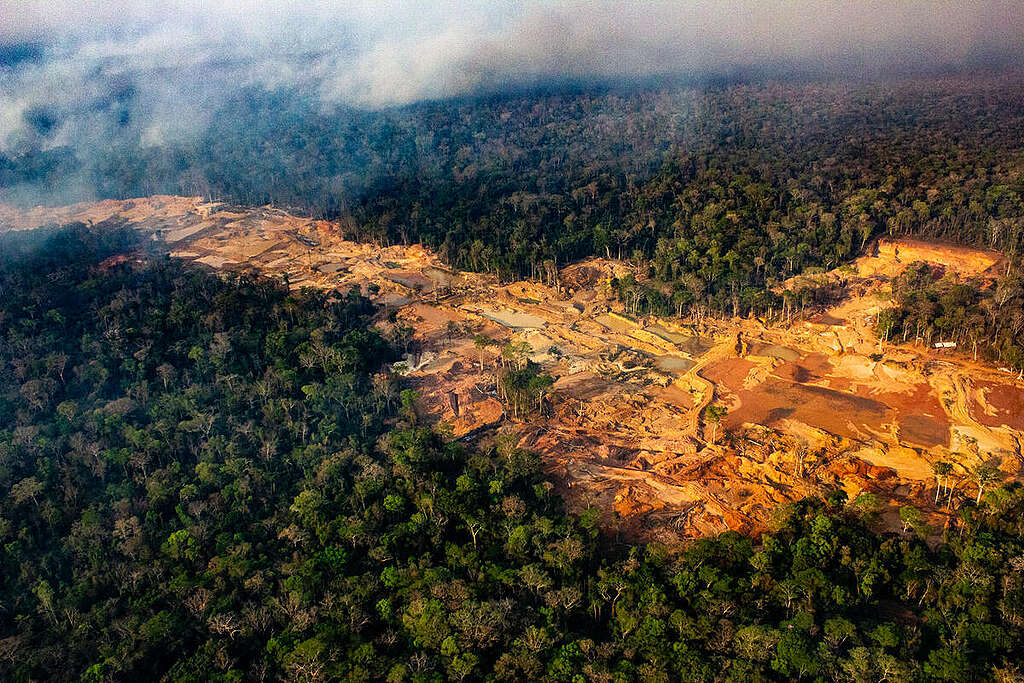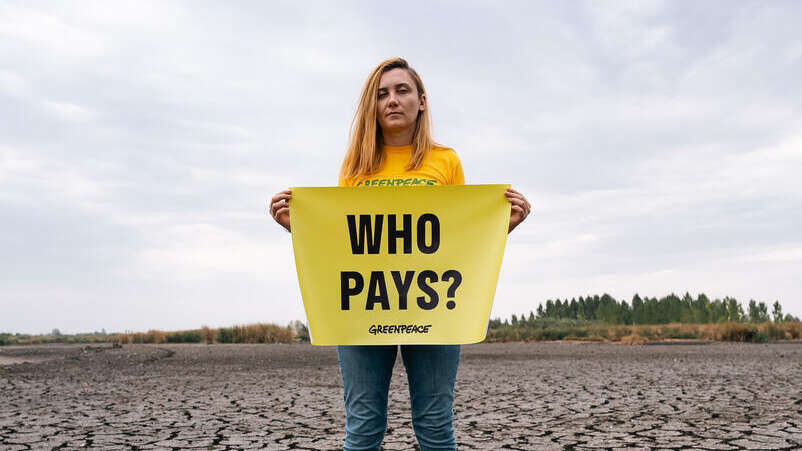The world's shared promise to limit global warming to 1.5°C above pre-industrial levels is hanging by a thread. The 2024 global temperature exceeded the 1.5°C threshold for the first time, and scientists now warn that we may temporarily overshoot this critical limit in the years ahead. This is not the moment to surrender. It is the moment to act.
There is no climate cliff at 1.5°C and no single point of no return, but there is no safe level of warming either. Every fraction of a degree avoided means lives, cultures, and ecosystems preserved. Each tonne of carbon we prevent from entering the atmosphere and each hectare of forest we protect could mean the difference between safety and devastation for millions of people.
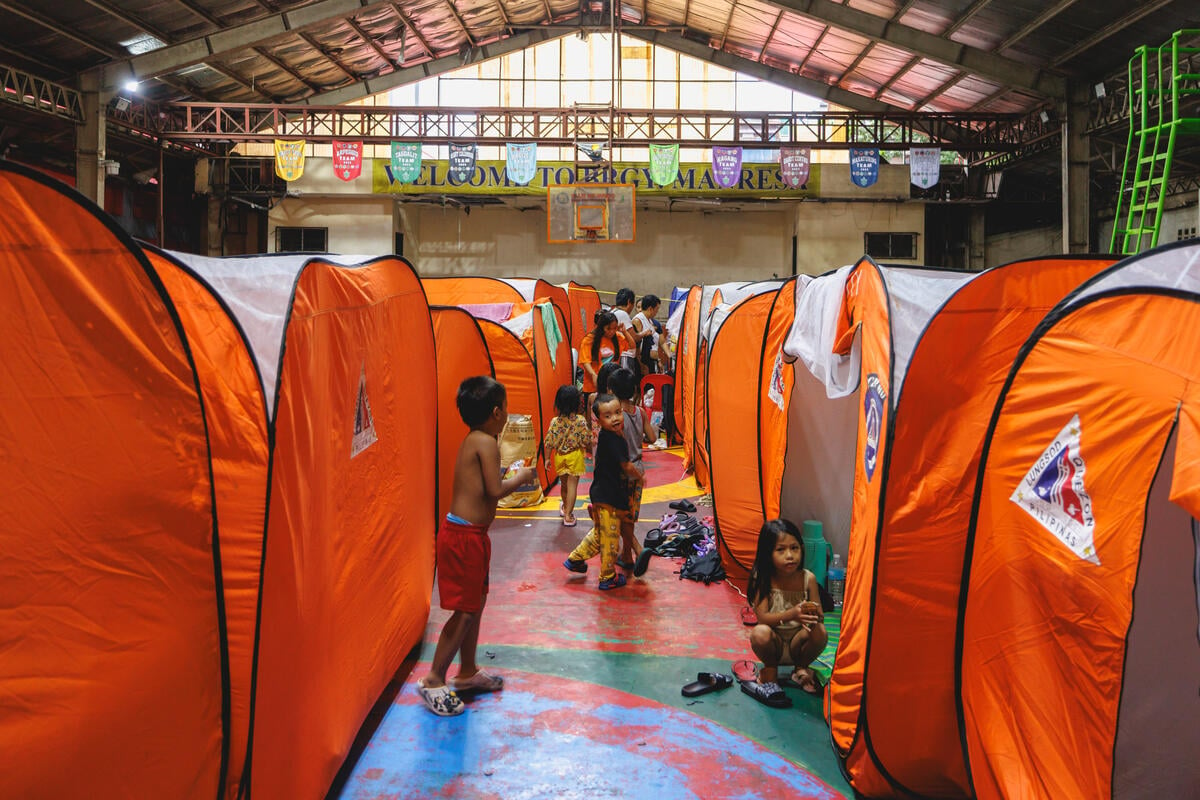
COP30, hosted in Belém, Brazil, is the most important opportunity in years to set the world back on track.
We're midway through one of the most important COPs in years and governments must seize the moment to deliver a Global Response Plan that closes the 1.5°C ambition gap, phases out fossil fuels, ends deforestation, and ensures that those most responsible for the crisis finally pay for the damage they have caused.
The threat is real and the difference between 1.5°C and 3°C is enormous
The world remains on a dangerous path. Currently, we're facing a predicted global temperature rise of up to 2.5°C by the end of the century. That would mean mass displacement, severe food and water shortages, irreversible ecosystem collapse, and unbearable heat across large parts of the planet.
We are already seeing a glimpse of this future. Unprecedented heatwaves, floods, wildfires, and droughts are devastating lives and livelihoods across every continent. For the most climate-vulnerable communities, a fraction of a degree can decide whether families can remain on ancestral land or are forced to flee.
But this outcome is not inevitable. The science is clear that limiting global heating to 1.5°C is still technically possible if we act now. What matters most is the speed and scale of the action we take today.
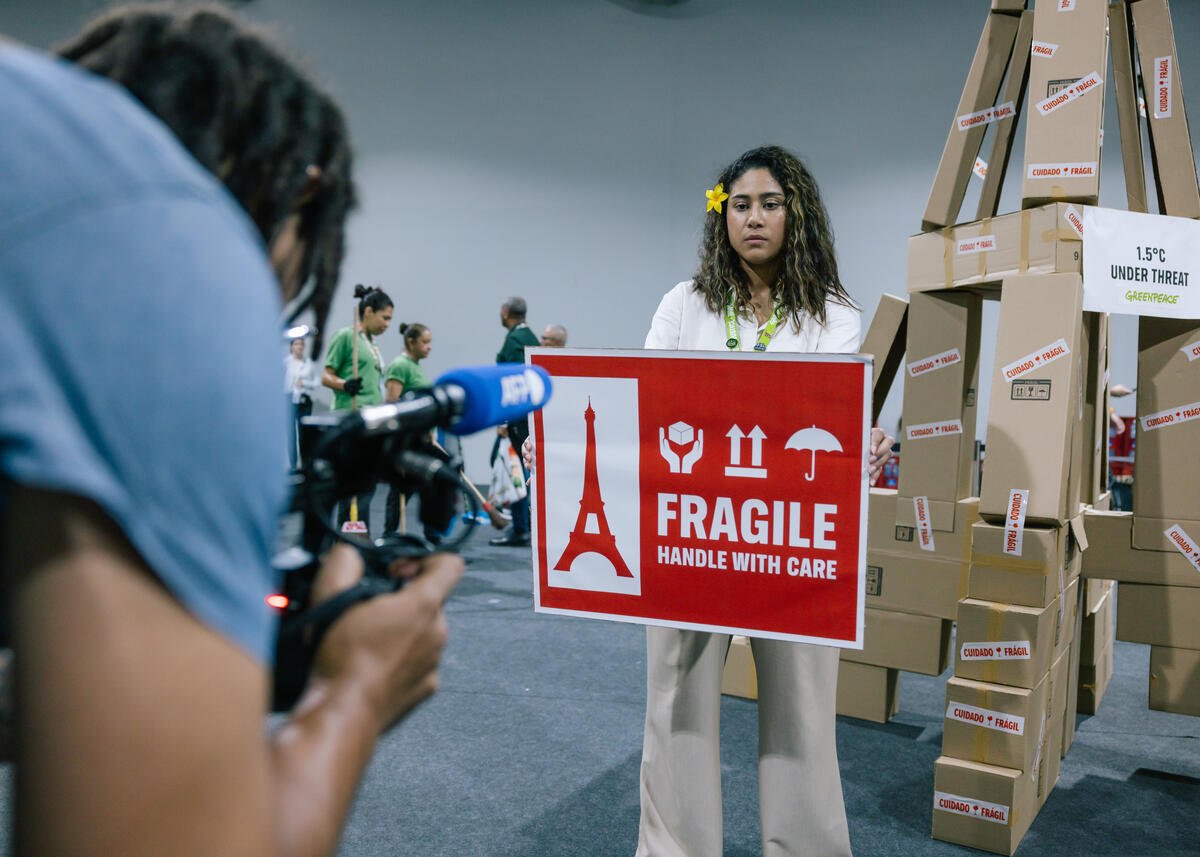
Forests and fossil fuels hold the key
The solutions are known and achievable. To keep 1.5°C within reach, the world must phase out coal, oil and gas, and end deforestation once and for all.
Fossil fuels are the single biggest driver of climate chaos. Governments must agree to a fair and fast phase-out, while ensuring a just transition for workers and communities. The fossil fuel industry has known about its destructive impact for decades and continues to profit while pushing false solutions such as carbon capture and offsets that delay real change. These distractions cannot replace urgent emission cuts.
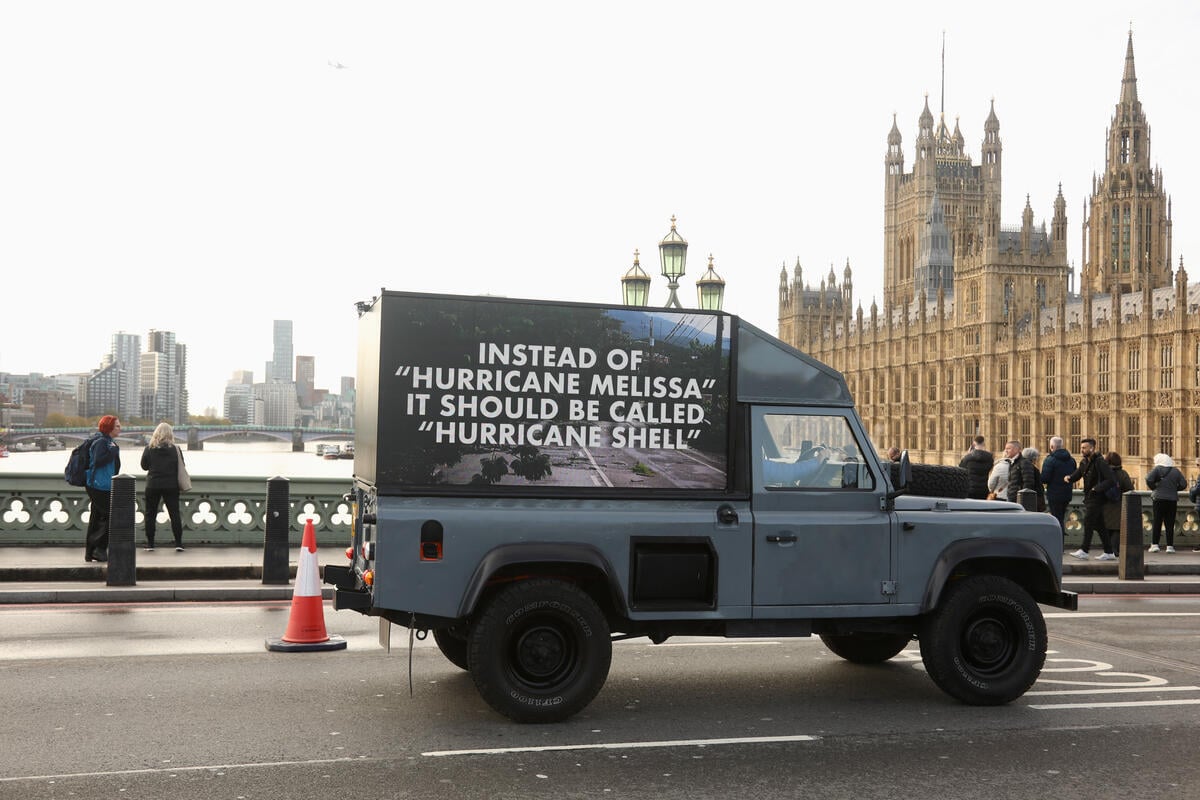
Forests are our greatest natural ally. They absorb carbon, regulate rainfall, and shelter much of the world's biodiversity. Yet industrial agriculture, logging, and mining are destroying them at alarming rates. The Amazon, home to hundreds of Indigenous Peoples and crucial to global climate stability, is dangerously close to a tipping point.
At COP30, governments must agree on a five-year Forest Action Plan to protect and restore forests and other vital ecosystems while upholding Indigenous Peoples' and local communities' rights. Protecting forests is protecting our collective future.
Ask political leaders to act on their promises to stop Amazon destruction.
The 1.5°C limit is a moral and legal obligation
The Paris Agreement was built on solidarity, fairness, and shared responsibility. Its 1.5°C limit represents a global safety aspiration for people and the planet. Yet too many governments are failing to meet their own promises.
The International Court of Justice has reaffirmed that states are legally bound to act in line with the 1.5°C limit under international law. Governments cannot claim to respect human rights while continuing to expand fossil fuels or allow deforestation.
Meanwhile, the corporations that have driven this crisis-the fossil fuel giants, industrial agribusinesses, and financial institutions that bankroll them-must be held accountable. Polluters must pay for the damage they have caused, and governments must ensure that public money supports solutions, not destruction.
At COP30, countries must now come together to deliver a global response plan to bridge the 1.5°C ambition gap, phase out fossil fuels and close the gap between words and deeds. The world is watching.
Sign the pact, record your story. Join the global movement to make polluters pay.
Hope is found in action and in people
Hopelessness only serves those who profit from destruction. The real power to change course lies with people: in Indigenous Peoples and Local Communities defending their forests, in young people taking to the streets, and in movements demanding justice and accountability.
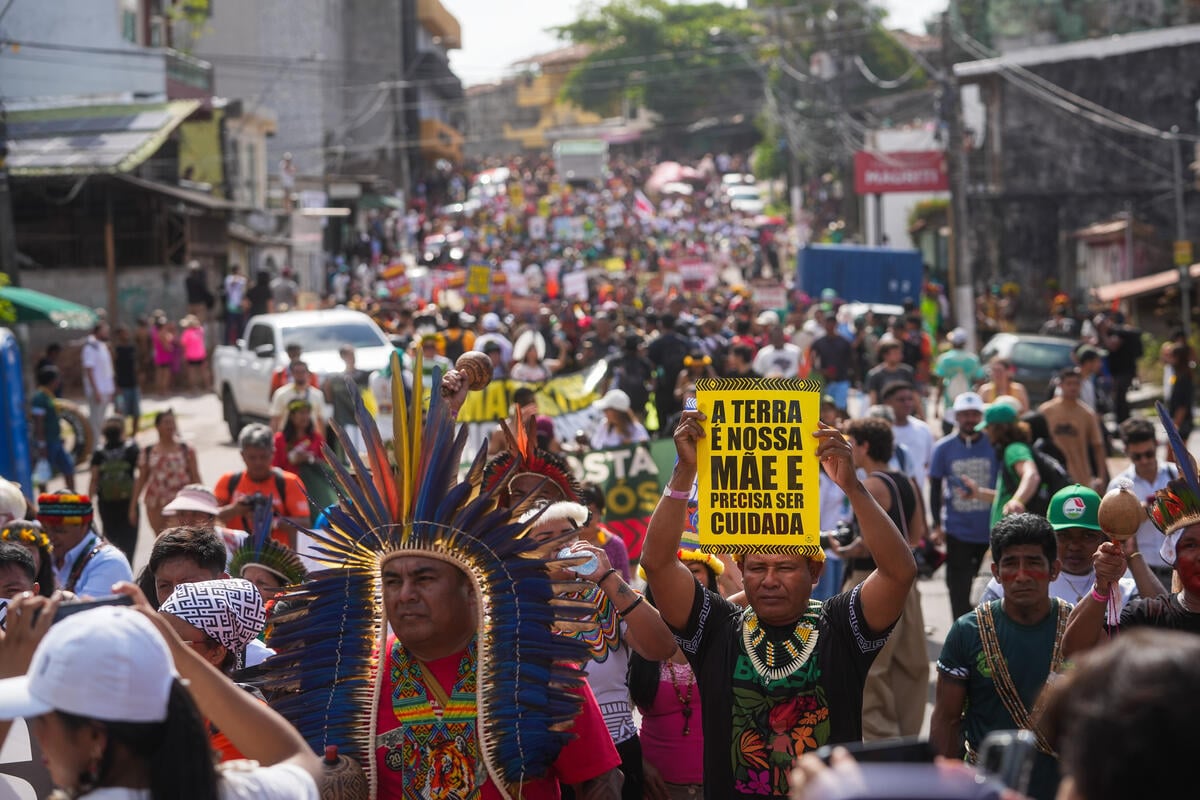
Hope is not naïve optimism. It is courage in motion. Across the world, renewable energy is growing faster than ever, Indigenous leaders are protecting their territories, and courts are delivering landmark rulings holding governments to account. Each of these examples shows that collective action works.
During this second week of COP30, we carry both the weight of responsibility and the strength of solidarity. We can still secure the safest climate possible, but only if we act now, with honesty, urgency, and hope.
Every government at COP30 must now rise to the challenge of keeping 1.5°C within reach.

